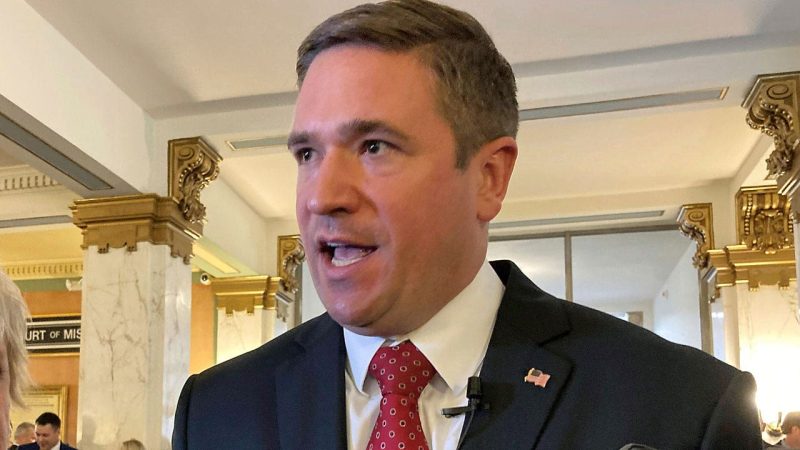
Planned Parenthood sues Missouri AG over investigation into trans procedures
Missouri’s state attorney general is investigating gender-affirming care provided by Planned Parenthood, according to a lawsuit filed Friday by the St. Louis health provider.
Republican Attorney General Andrew Bailey demanded documents from Planned Parenthood after finding out that the clinic provides ‘life-altering gender transition drugs to children with any therapy assessment,’ spokeswoman Madeline Sieren said in a statement. She described that as a departure from standard care.
Planned Parenthood of the St. Louis Region and Southwest Missouri sued in response, trying to block access to its records. In court filings, the healthcare provider argued Bailey has no authority to investigate the clinic, which is inspected by the state health department.
A Planned Parenthood doctor described Bailey’s investigation as a ‘fishing expedition’ targeting the clinic, which provides gender-affirming care to adults, and teens ages 16 and older. Dr. Colleen McNicholas, the health center’s chief medical officer, told The Associated Press that the attorney general’s investigation is ‘an attempt to help him work outside of the legislative process and eliminate access to transgender care for Missourians.’
The Attorney General’s Office cited its ongoing investigation into a transgender youth clinic run by Washington University, ‘or others in the state providing similar services,’ as the reason for the document request, according to a letter to Planned Parenthood dated March 10.
Sieren criticized Planned Parenthood for withholding its records.
‘We look forward to prevailing in this request for information and learning what is truly going on with Planned Parenthood in connection with gender transition issues,’ Sieren said in a Friday statement.
In February, Bailey launched an investigation into the Washington University Transgender Center at St. Louis Children’s Hospital following allegations of mistreatment by a former employee. The ex-staffer alleged that physicians there did not warn patients and parents enough about potential side effects of puberty blockers and hormones, and that doctors pressured parents to consent to treatment.
Planned Parenthood argues in its lawsuit that its clinic has nothing to do with the Washington University center.
The lawsuit comes amid a national push to restrict transgender health care, drag shows, bathroom access and how LGBTQ+ topics are discussed in schools. The lawsuit was filed Friday as rallies were scheduled in cities nationwide as part of Transgender Day of Visibility.
As the state’s top prosecutor, Bailey is following his predecessor’s lead in using the office to take a stand on social issues. Last week, he announced plans to file an emergency rule to restrict healthcare for transgender children. It would require an 18-month waiting period, 15 therapy sessions and additional mental health treatment before Missouri doctors can provide gender-affirming care to minors.
‘I am dedicated to using every legal tool at my disposal to stand in the gap and protect children from being subject to inhumane science experiments,’ Bailey said in a statement announcing the planned rule.
His office has not yet filed the rule.
Transgender medical treatment for children has been available in the U.S. for over a decade and is endorsed by major medical associations. Many clinics use treatment plans pioneered in Amsterdam 30 years ago, according to a recent review in the British Psych Bulletin. Since 2005, the number of youth referred to gender clinics has increased as much as tenfold in the U.S., U.K, Canada and Finland, the review said.
McNicholas, of Planned Parenthood, said Bailey is using the ‘same playbook’ that anti-abortion activists and elected officials have used to restrict abortions.
Missouri banned almost all abortions in 2022, after the U.S. Supreme Court overturned Roe v. Wade.
Before that, Republicans fought for years to regulate abortion out of existence in the state. The GOP-led state legislature proposed anti-abortion bills yearly. When increasingly restrictive bans on the procedure were tossed in court, Republican governors stepped in.
‘If we are to learn anything from our past experience with the state targeting us for the provision of lawful abortion care, we know that other folks who are providing this care are certainly going to be targets,’ McNicholas said. ‘If not now, then soon.’
